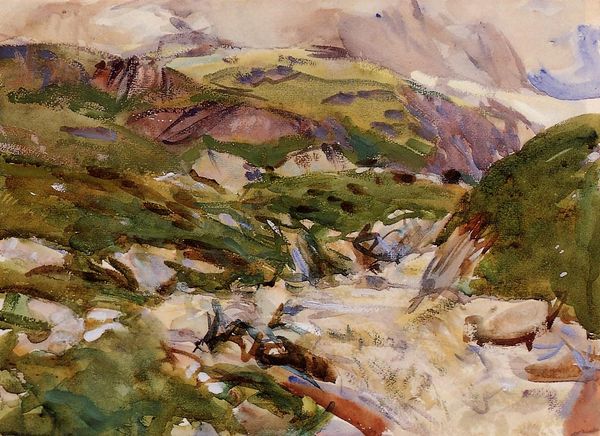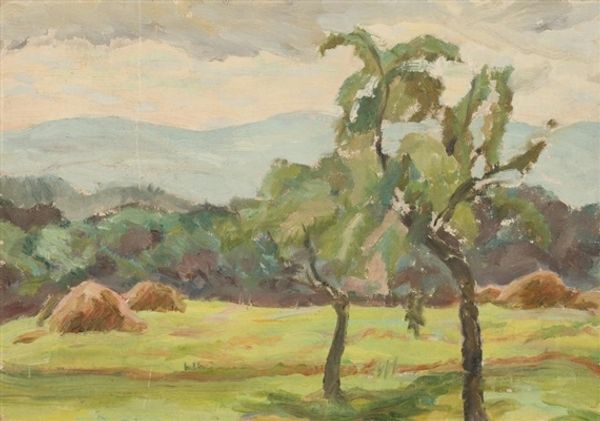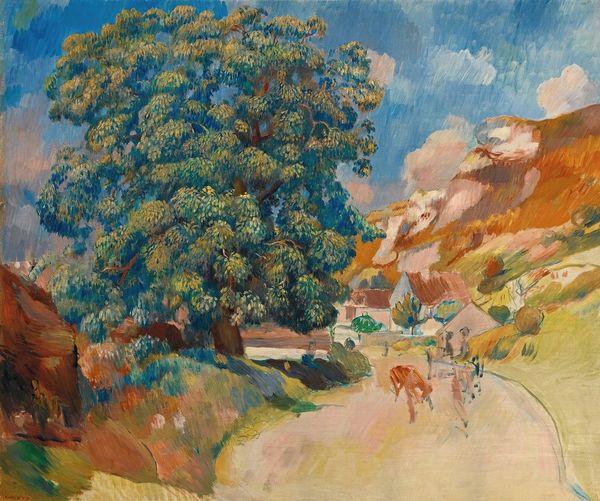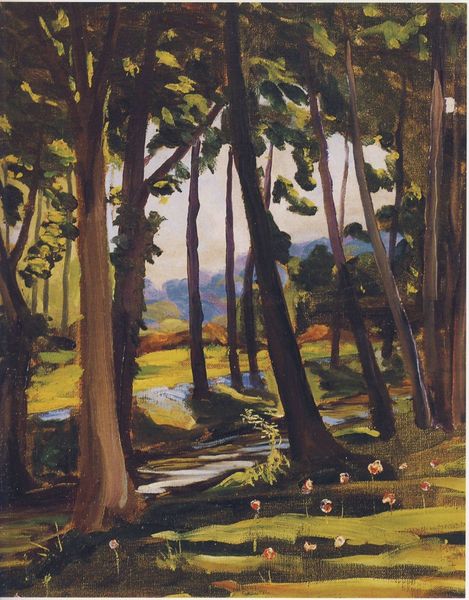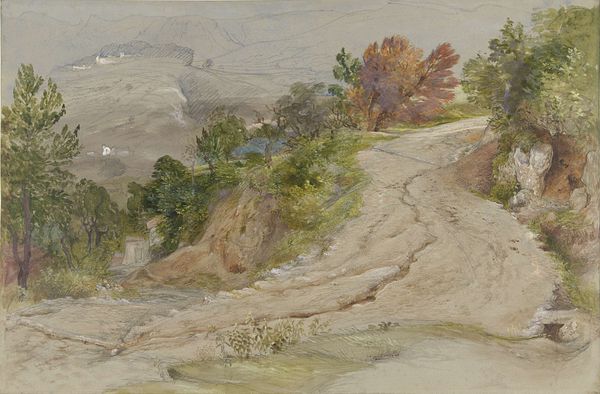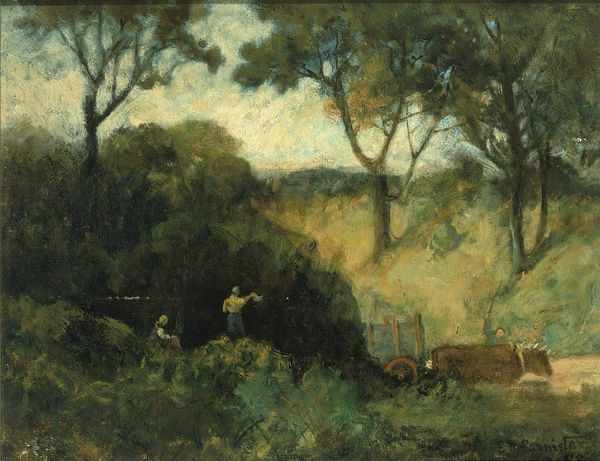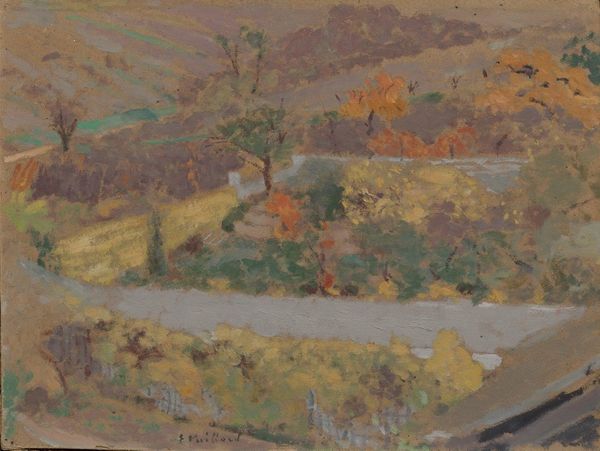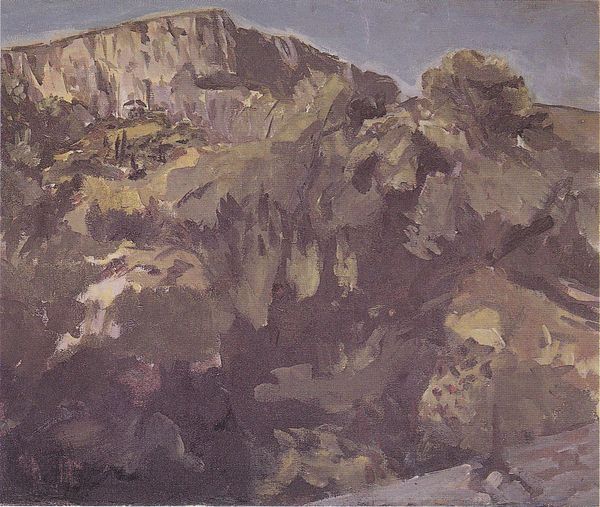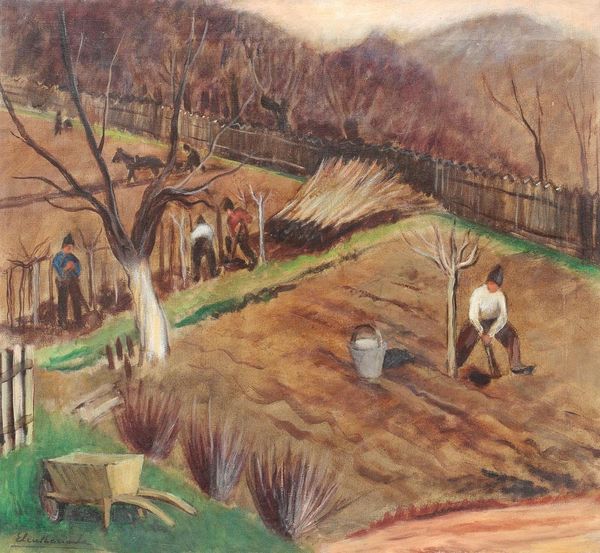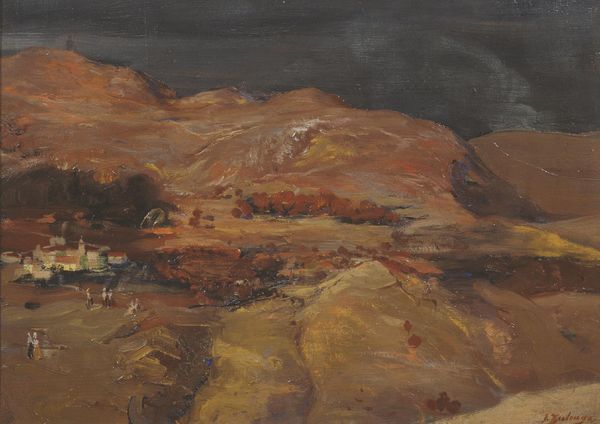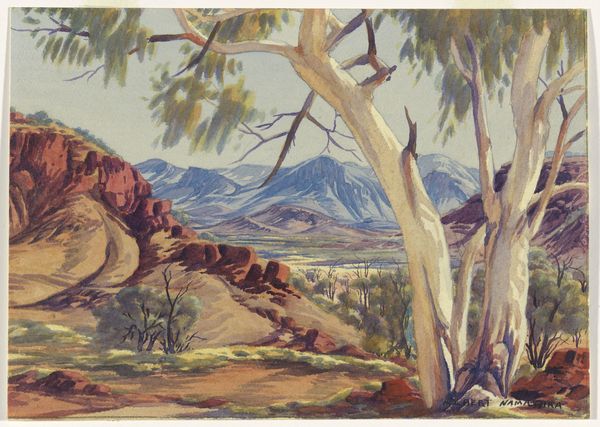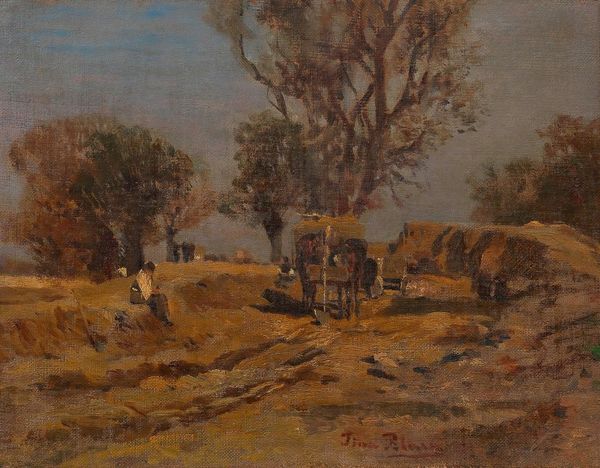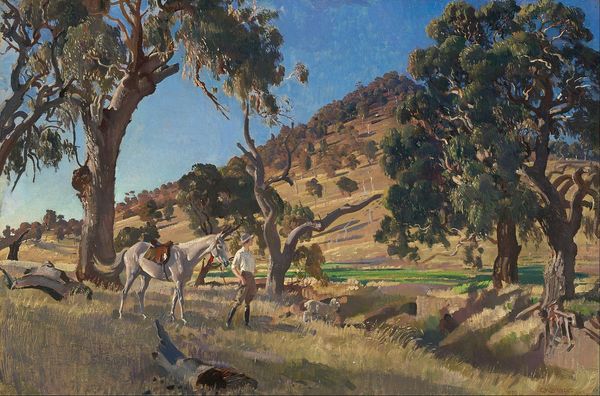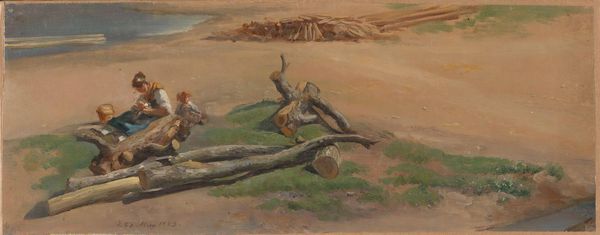
oil-paint, impasto
#
tree
#
oil-paint
#
landscape
#
impressionist landscape
#
oil painting
#
impasto
#
female-nude
#
naive art
#
orientalism
#
genre-painting
#
post-impressionism
#
nude
Copyright: Public domain
Editor: We’re looking at "Tahitian Woman near River" by Paul Gauguin, painted in 1893. It's an oil painting and presents three figures bathing near a river or watering hole in a landscape. The textures feel rough, and there’s a kind of deliberate flatness to the figures. How do you interpret this work? Curator: This image pulses with the exoticized promise of Tahiti that captured Gauguin’s imagination. Beyond the surface of an "impressionist landscape" with female figures, it reveals how Western ideas became imprinted upon non-Western societies. The symbol of the 'nude' becomes intertwined with themes of "genre-painting" and cultural projection in an uneasy orientalist fantasy. How does the color palette make you feel? Editor: It's interesting you point that out, especially since the vivid yellows and greens feel idyllic but also somewhat unnatural, like a dream. I can see how those feelings can be complicated when connected to the orientalist gaze. Curator: Exactly. Gauguin uses "naive art" stylistic choices to convey his view, contrasting cultural memory and Western ideals, informed by his perspective. Even in his choice of an "impressionist landscape", is it an authentic representation or an imagined ideal? Does the female nude express liberty or exoticism? Editor: That tension makes the piece much richer, knowing the artist's subjective and maybe even skewed lens through which he saw and presented Tahiti. It feels like understanding the symbolism unlocks a whole other level. Curator: It makes you question if the cultural narrative represented truly belongs to the depicted. Always remember the symbols and their subjective narratives, beyond the aesthetic, beyond what meets the eye!
Comments
No comments
Be the first to comment and join the conversation on the ultimate creative platform.
